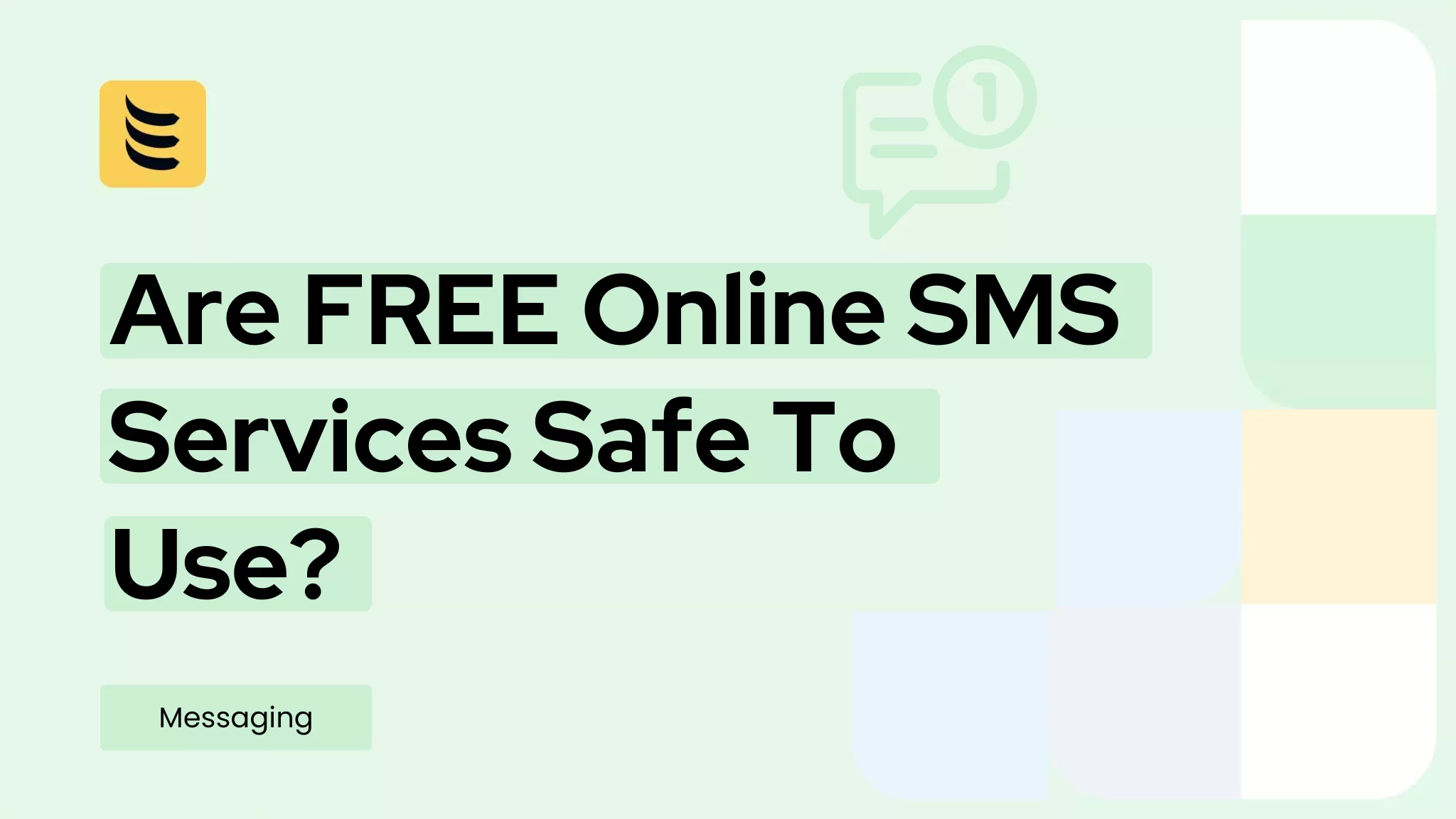Choosing between a local and a toll-free number is more than just a technical decision—it’s a strategic one that can impact how customers perceive your business and how easily they can reach you. Local numbers create a sense of community and trust, making them ideal for small businesses targeting specific regions. On the other hand, toll-free numbers project professionalism and accessibility, often used by larger companies to serve a national audience. But which one is right for your business? In this blog, we’ll break down the pros, cons, and key considerations to help you decide whether a local or toll-free number aligns best with your goals, audience, and brand identity.
Small details have a major effect on first impressions. For a business, that can mean the difference between life and death. A business has a very brief window of opportunity to catch a client’s attention and portray itself in the best possible light.
Your contact details are a very big part of those first impressions: it might be okay for a casual eBay seller to offer their customers a hotmail address and mobile number but almost all legitimate businesses will want to be perceived in a distinctly different category.
At best, a free email service domain and a mobile number are stating that you work alone – even when you don’t, or that you don’t intend to stick around very long. A domain that reflects your business and a permanent professional looking number speaks a thousand words.
At one time, a toll-free landline number added to that impression, especially if you were more than a local business. When they first became available on the old switched networks, toll-free number codes implied that the business had significant resources and that it prioritized customer service. As times have changed, their effect has become less clear.
Telecom companies multiplied the number of tariffs and the public soon began to confuse toll-free with premium rate numbers. When they started tweaking area codes as well, that simply added to the confusion. Now, the public is learning to approach any odd looking number with caution: a significant percentage are reluctant to dial them and even more reluctant to pick up an incoming call from anything “strange”. In fact, a survey from “Software Advice” reported that 8 out of 10 people say they are “extremely unlikely” to answer incoming calls from an 0800-style number.

Existing enterprises and start-ups, in particular, should be asking themselves what impression they should be sending with their telephone numbers. Should you be using a dedicated business number, and if so should it be toll-free or something else? The new VoIP phone systems give you more choice and more control over numbers than ever before and at a price that every business can afford.
Why a virtual phone number is good for business
Deciding what kinds of number to operate is also a matter of cost. Specialist VoIP providers such as IDT Express offer wholesale VoIP termination rates that allow you to connect all over the world for less than your existing local phone bills, so price is not likely to be a major constraint. Small businesses that would never have thought of extending nationally or internationally, or of operating toll-free services, may be able to consider it for the first time.
The virtual numbers provided with VoIP do not restrict you to any particular local area code and it is a simple matter to divert calls anywhere you want with no need for a PBX and at no extra cost. You can choose to use a national toll-free number or
numbers with different area codes – depending upon your target markets. Customers are much more likely to call your number if they’re confident it will be a cheap call.
The Pros and Cons of Local Numbers
When it comes to choosing a phone number for your business, local numbers are a popular choice, especially for small and medium-sized businesses targeting specific regions. But like any business decision, there are both advantages and disadvantages to consider.
Advantages of Local Numbers
- Builds Local Trust and Familiarity:
A local number with a familiar area code signals to customers that your business is part of their community. This can foster trust and make your business feel more accessible and relatable. - Cost-Effective Solution:
Local numbers are generally more affordable than toll-free numbers, making them a budget-friendly option for startups and small businesses. - Ideal for Geo-Targeted Marketing:
If your business relies on local customers (e.g., restaurants, plumbers, or real estate agents), a local number can reinforce your connection to the area and improve local SEO. - Higher Call Answer Rates:
Customers are more likely to answer calls from a local number, as they perceive them as less likely to be spam or telemarketing.
Disadvantages of Local Numbers
- Limited Reach:
Local numbers are tied to a specific area code, which can make your business appear less accessible to customers outside that region. This can be a drawback if you’re targeting a national or global audience. - Less Professional for Larger Brands:
For businesses with a national presence or aspirations, a local number might not convey the same level of professionalism or credibility as a toll-free number. - Potential for Missed Opportunities:
If your business expands beyond your local area, customers in other regions may hesitate to call due to long-distance charges.
The Pros and Cons of Toll-Free Numbers
Toll-free numbers are a classic choice for businesses looking to project a professional image and remove barriers for customer communication. However, they come with their own set of pros and cons that businesses should weigh carefully.
Advantages of Toll-Free Numbers
- Projects Professionalism and Credibility:
Toll-free numbers (e.g., 800, 888, 877) are often associated with established, nationwide brands. They can make your business appear larger and more trustworthy. - Encourages Customer Calls:
Since customers don’t incur charges for calling toll-free numbers, they’re more likely to reach out, especially for customer support or inquiries. - Nationwide Reach:
Toll-free numbers are not tied to a specific location, making them ideal for businesses targeting a national or even international audience. - Enhanced Branding Opportunities:
Many toll-free services allow you to choose custom numbers (e.g., 1-800-FLOWERS), which can make your business more memorable.
Disadvantages of Toll-Free Numbers
Perception of Impersonality:
For small businesses, a toll-free number might create a disconnect with local customers who prefer a more personal, community-oriented approach.
Higher Costs:
While customers don’t pay for calls, the business does. Toll-free numbers often come with higher setup and maintenance fees compared to local numbers.
Less Effective for Local Businesses:
If your business primarily serves a local audience, a toll-free number might feel impersonal and disconnected from the community.
Potential for Spam Calls:
Toll-free numbers can sometimes attract unwanted calls, such as telemarketers or scammers, which can increase operational costs.
Fortunately, it is a simple matter to operate toll-free numbers alongside local numbers when you switch to VoIP. You can easily channel calls between them from your desktop interface.
When to Choose a Local Number
Local numbers are an excellent choice for businesses that primarily serve a specific geographic area or rely on building strong community ties. If your business thrives on local customer relationships, a local number can help you establish trust and credibility within your region. For example, small businesses like neighborhood coffee shops, local plumbing services, or real estate agents often benefit from using local numbers. These businesses rely on word-of-mouth referrals and local marketing efforts, and a familiar area code can make them feel more approachable to nearby customers.
Additionally, local numbers are ideal for businesses that use geo-targeted advertising. If you’re running ads aimed at a specific city or region, a local number can reinforce your connection to that area and improve response rates. For instance, a car dealership in Chicago using a 312 area code is more likely to attract local customers than one with a generic toll-free number. Local numbers also work well for businesses that want to appear as part of the community, such as local gyms, salons, or repair services.
In summary, if your business focuses on serving a local audience, values cost-effectiveness, and aims to build a strong community presence, a local number is likely the right choice for you.
When to Choose a Toll-Free Number
Toll-free numbers are the go-to option for businesses that operate on a national or international scale or want to project a more professional and accessible image. If your business relies on customer service, sales, or support, a toll-free number can make it easier for customers to reach you without worrying about long-distance charges. For example, e-commerce companies, large corporations, and customer support centers often use toll-free numbers to ensure customers feel comfortable contacting them from anywhere.
Toll-free numbers are also a great fit for businesses that want to appear established and trustworthy. For instance, a nationwide insurance provider or a tech support company might use a toll-free number to convey reliability and professionalism. Additionally, businesses that run national marketing campaigns, such as infomercials or radio ads, often use toll-free numbers to make it easy for customers to respond.
Another scenario where toll-free numbers shine is when businesses want to create a memorable brand identity. Custom vanity numbers, like 1-800-FLOWERS, not only make it easier for customers to remember your contact information but also reinforce your brand in their minds.
In short, if your business targets a wide audience, prioritizes customer accessibility, and aims to project a polished and professional image, a toll-free number is likely the better option.
Can You Use Both? Exploring Hybrid Solutions
Why limit yourself to just one type of phone number when you can leverage both local and toll-free numbers to meet different business needs? Many businesses find success by using a hybrid approach, combining the strengths of both options to maximize their reach and effectiveness.
For example, a national retail chain might use local numbers for its individual store locations to connect with the surrounding community while maintaining a central toll-free number for customer service inquiries. This way, customers can call their local store for specific questions or visit the toll-free line for general support.
Similarly, businesses with multiple service areas can use local numbers to establish a presence in each region while keeping a toll-free number for corporate communications. A moving company, for instance, could use local numbers in each city it serves to attract nearby customers and a toll-free number for booking and customer service.
Another effective strategy is to use local numbers for marketing campaigns targeting specific regions and a toll-free number for nationwide promotions. This approach allows businesses to maintain a local feel while still projecting a professional image on a larger scale.
By using both local and toll-free numbers strategically, businesses can cater to different customer needs, enhance their brand image, and improve overall accessibility. The key is to align each number with its specific purpose and ensure seamless integration across all communication channels.
Final Tips for Making the Right Decision
Choosing between a local and toll-free number doesn’t have to be overwhelming. By focusing on your business goals, target audience, and budget, you can make a decision that aligns with your needs. Here are some final tips to help you make the right choice:
- Know Your Audience:
If your customers are primarily local, a local number can build trust and familiarity. For a national or international audience, a toll-free number is often the better choice. - Consider Your Brand Image:
Think about how you want your business to be perceived. A local number reinforces community ties, while a toll-free number projects professionalism and accessibility. - Evaluate Your Budget:
Local numbers are generally more cost-effective, while toll-free numbers come with higher setup and maintenance costs. Weigh the benefits against your budget to determine what works best. - Plan for Growth:
If you’re a small business with plans to expand, consider whether a toll-free number might better suit your future needs. Alternatively, you can start with a local number and switch later. - Test and Measure:
If you’re unsure, consider testing both options. Use a local number for one campaign and a toll-free number for another, then analyze which performs better. - Don’t Be Afraid to Use Both:
Many businesses successfully use a hybrid approach, combining local numbers for regional outreach and toll-free numbers for national customer service.
By keeping these tips in mind, you can confidently choose the phone number type that best supports your business objectives and customer relationships.
FAQs About Local and Toll-Free Numbers
1. What’s the cost difference between local and toll-free numbers?
Local numbers are typically more affordable, with lower setup and monthly fees. Toll-free numbers often come with higher costs, including per-minute charges for incoming calls. However, the investment in a toll-free number can pay off if it enhances your brand image and customer accessibility.
2. How do I set up a local or toll-free number?
Setting up either type of number is straightforward. You can purchase them through phone service providers or virtual phone system platforms. For toll-free numbers, you may need to choose a prefix (e.g., 800, 888) and, optionally, a custom vanity number.
3. Can I keep my existing phone number if I switch to a toll-free number?
Yes, you can usually port your existing local number to a new service provider while adding a toll-free number. This allows you to maintain your current contact information while expanding your reach.
4. Are toll-free numbers scalable for growing businesses?
Absolutely. Toll-free numbers are highly scalable and can handle high call volumes, making them ideal for businesses with nationwide or international growth plans. Many providers also offer advanced features like call routing and analytics to support scalability.
5. Can I use both local and toll-free numbers for my business?
Yes, many businesses use a hybrid approach. For example, you might use local numbers for regional marketing and toll-free numbers for customer service. This strategy allows you to cater to different customer needs effectively.
6. Do toll-free numbers work internationally?
Some toll-free numbers can be used internationally, but this depends on the provider and the specific number. If you have a global audience, check with your provider to ensure compatibility.
7. How do I track the effectiveness of my phone number choice?
Most virtual phone systems offer call analytics, allowing you to track metrics like call volume, duration, and geographic origin. Use this data to evaluate how well your chosen number type is performing.
8. Can I change my phone number type later?
Yes, you can switch from a local to a toll-free number (or vice versa) as your business evolves. However, it’s important to update your marketing materials and inform your customers of the change.
By addressing these common questions, you can make a more informed decision and ensure that your phone number strategy supports your business goals.



